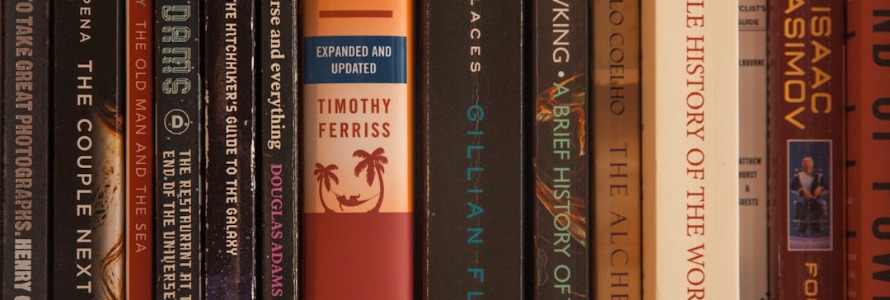
As someone who has always been fascinated by the wonders of science, I’ve found great joy in exploring the memoirs of some of the most brilliant minds in the field. These memoirs offer a unique glimpse into the lives of scientists, revealing the stories behind their groundbreaking discoveries and the personal journeys that led them there. Here, I’d love to share some of the most inspiring memoirs by scientists that have left a lasting impression on me.
1. “Surely You’re Joking, Mr. Feynman!” by Richard P. Feynman
Richard Feynman’s memoir, “Surely You’re Joking, Mr. Feynman!” is an absolute delight. I remember picking up this book on a recommendation from a friend who knew my penchant for quirky, humorous stories. Feynman’s anecdotes, ranging from his time working on the Manhattan Project to his adventures as a bongo-playing, safe-cracking physicist, are both entertaining and enlightening.
One of the key takeaways for me was Feynman’s insatiable curiosity and his unconventional approach to problem-solving. His playful yet profound perspective on life reminded me of the importance of maintaining a sense of wonder and joy in whatever we do. Feynman’s memoir is a testament to the power of curiosity and the joy of discovery.
2. “The Double Helix: A Personal Account of the Discovery of the Structure of DNA” by James D. Watson
James Watson’s “The Double Helix” is a captivating account of the discovery of the structure of DNA. I first read this book during a college course on genetics, and it left a lasting impression on me. Watson’s narrative provides a behind-the-scenes look at the intense competition, collaboration, and excitement that surrounded this monumental discovery.
What struck me most was the human aspect of the story—the rivalries, the friendships, and the sheer determination of the scientists involved. Watson’s candid reflections on his experiences, including his interactions with Rosalind Franklin and Francis Crick, offered valuable insights into the complexities of scientific research. “The Double Helix” is a must-read for anyone interested in the history of science and the journey of discovery.

3. “Lab Girl” by Hope Jahren
Hope Jahren’s “Lab Girl” is a beautifully written memoir that blends science with personal narrative. I was drawn to this book because of Jahren’s unique perspective as a female scientist in a predominantly male field. Her lyrical prose and heartfelt storytelling made this memoir a captivating read.
Reading “Lab Girl,” I was moved by Jahren’s passion for plants and her dedication to her research. Her descriptions of the challenges she faced, both professionally and personally, resonated deeply with me. Jahren’s memoir is a celebration of resilience, perseverance, and the beauty of the natural world. It reminded me of the importance of staying true to one’s passion, even in the face of adversity.
4. “Einstein: His Life and Universe” by Walter Isaacson
Walter Isaacson’s biography of Albert Einstein is a comprehensive and deeply insightful exploration of one of the most iconic figures in science. Although not a memoir written by Einstein himself, Isaacson’s meticulous research and engaging narrative style make this book a compelling read. I remember being completely engrossed in the story, captivated by the details of Einstein’s life and his groundbreaking work.
Isaacson’s portrayal of Einstein’s intellectual curiosity, his rebellious spirit, and his commitment to his principles offered valuable lessons for my own life. Einstein’s journey reminded me of the importance of questioning assumptions and thinking outside the box. “Einstein: His Life and Universe” is an inspiring tribute to the mind of a genius and the impact of his contributions to science.
5. “The Immortal Life of Henrietta Lacks” by Rebecca Skloot
Rebecca Skloot’s “The Immortal Life of Henrietta Lacks” is a poignant and powerful narrative that tells the story of Henrietta Lacks, the woman whose cells were used to create the first immortal human cell line. I first read this book during a bioethics course, and it profoundly impacted my understanding of the ethical complexities in scientific research.
Skloot’s meticulous research and compassionate storytelling bring to light the human side of this scientific breakthrough. Henrietta’s story, and the impact of her cells on medical research, raised important questions about consent, ethics, and the intersection of science and society. “The Immortal Life of Henrietta Lacks” is a must-read for anyone interested in the ethical dimensions of scientific discovery and the enduring legacy of one woman’s contribution to science.

6. “When Breath Becomes Air” by Paul Kalanithi
Paul Kalanithi’s memoir, “When Breath Becomes Air,” is a deeply moving account of his journey as a neurosurgeon diagnosed with terminal cancer. I remember reading this book during a particularly introspective period in my life, and it resonated with me on a profound level. Kalanithi’s eloquent prose and candid reflections on his experiences offer a poignant exploration of life, death, and the search for meaning.
What struck me most about “When Breath Becomes Air” was Kalanithi’s ability to find beauty and purpose in the face of mortality. His reflections on the intersection of science and philosophy reminded me of the importance of seeking meaning in our lives, no matter how challenging the circumstances. Kalanithi’s memoir is a testament to the resilience of the human spirit and the enduring pursuit of knowledge and understanding.
Conclusion
Memoirs by scientists offer a unique window into their worlds, revealing the stories behind their groundbreaking discoveries and the personal journeys that led them there. Each of these memoirs has left a lasting impact on me, shaping my own journey and reminding me of the power of curiosity, resilience, and the enduring pursuit of knowledge.
Through their words, we gain insight into their thoughts, their emotions, and their creative processes. These memoirs are not just stories; they are lessons in perseverance, vulnerability, and the enduring quest for understanding. For anyone looking to understand the mind of a scientist, these books are must-reads.
As I continue to explore the vast landscape of scientific memoirs, I am constantly reminded of the beauty and complexity of the human experience. It is through these personal narratives that we can find inspiration, comfort, and a deeper appreciation for the discoveries that have shaped our world.


